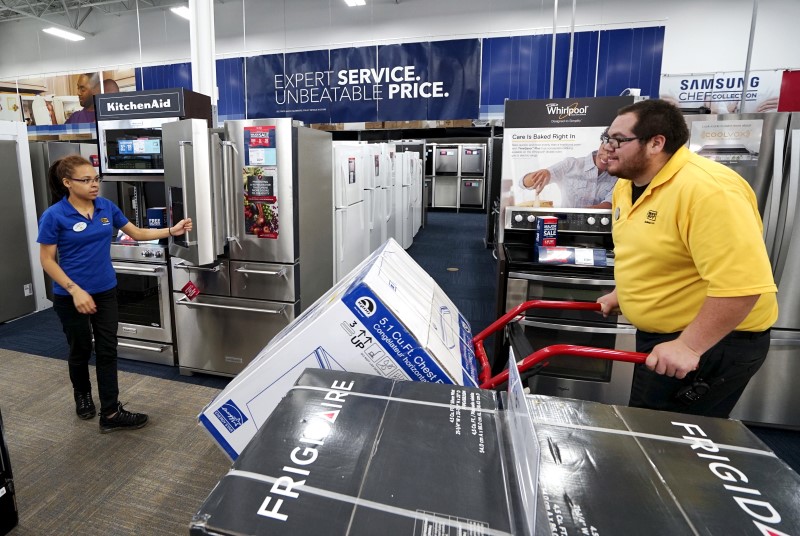US stock futures flat after Wall St drops on Trump tariffs, soft jobs data
In a challenging retail environment, Best Buy Co. Inc. (NYSE:BBY) stock has touched a 52-week low, dipping to $65.66, with the company maintaining a market capitalization of approximately $14 billion. According to InvestingPro analysis, the stock appears undervalued at current levels. The consumer electronics giant has faced headwinds over the past year, reflected in a significant 1-year change with the stock price declining by -17.77%. Despite these challenges, the company maintains a solid 5% dividend yield and has raised its dividend for 7 consecutive years. This downturn mirrors broader market trends and consumer spending shifts, as investors and analysts closely monitor the company’s strategies to navigate the evolving retail landscape. InvestingPro data reveals 18 analysts have revised their earnings downwards for the upcoming period. Best Buy’s management is now under pressure to adapt and innovate to regain momentum and investor confidence in the face of these persistent challenges. The company maintains moderate debt levels and sufficient cash flows to cover interest payments, with a healthy Altman Z-Score of 4.5 indicating financial stability.
In other recent news, Best Buy has seen several changes in analyst ratings and price targets amid concerns about the economic environment and tariff impacts. Citi downgraded Best Buy from Buy to Neutral, lowering its price target to $70 due to consumer uncertainty and potential risks to same-store sales. In contrast, DA Davidson maintained its Buy rating with a $110 target, highlighting stronger-than-expected fourth-quarter sales and positive profit margins driven by membership, marketplace, and media initiatives. UBS also adjusted its price target for Best Buy to $105 from $115, maintaining a Buy rating while noting challenges related to tariffs and market skepticism about earnings potential.
Truist Securities reduced its price target from $95 to $81, maintaining a Hold rating, expressing concerns over economic challenges and the effects of tariffs on Best Buy’s financial performance. Best Buy’s fourth-quarter earnings per share and full-year 2025 guidance met expectations, but early estimates of tariff impacts contributed to a decline in stock value. The company faces potential earnings reductions due to tariffs on Chinese and Mexican imports, which could affect comparable store sales and margins. These recent developments reflect a mix of cautious optimism and concern among analysts about Best Buy’s ability to navigate the current retail landscape.
This article was generated with the support of AI and reviewed by an editor. For more information see our T&C.
